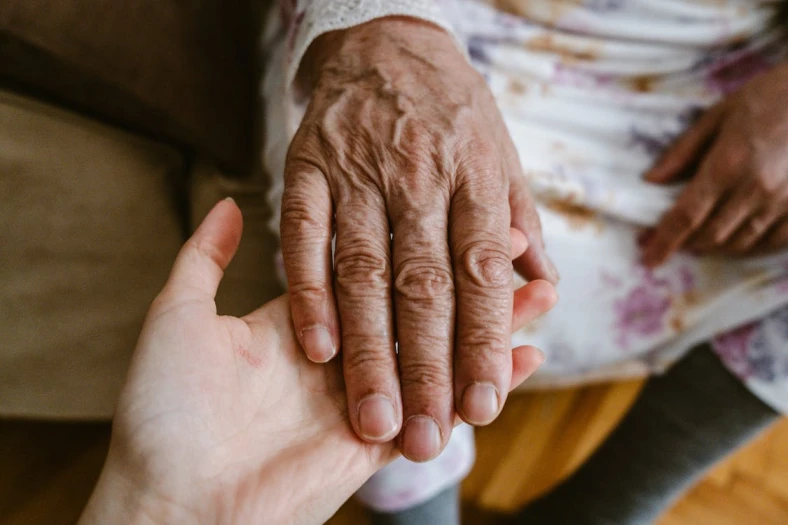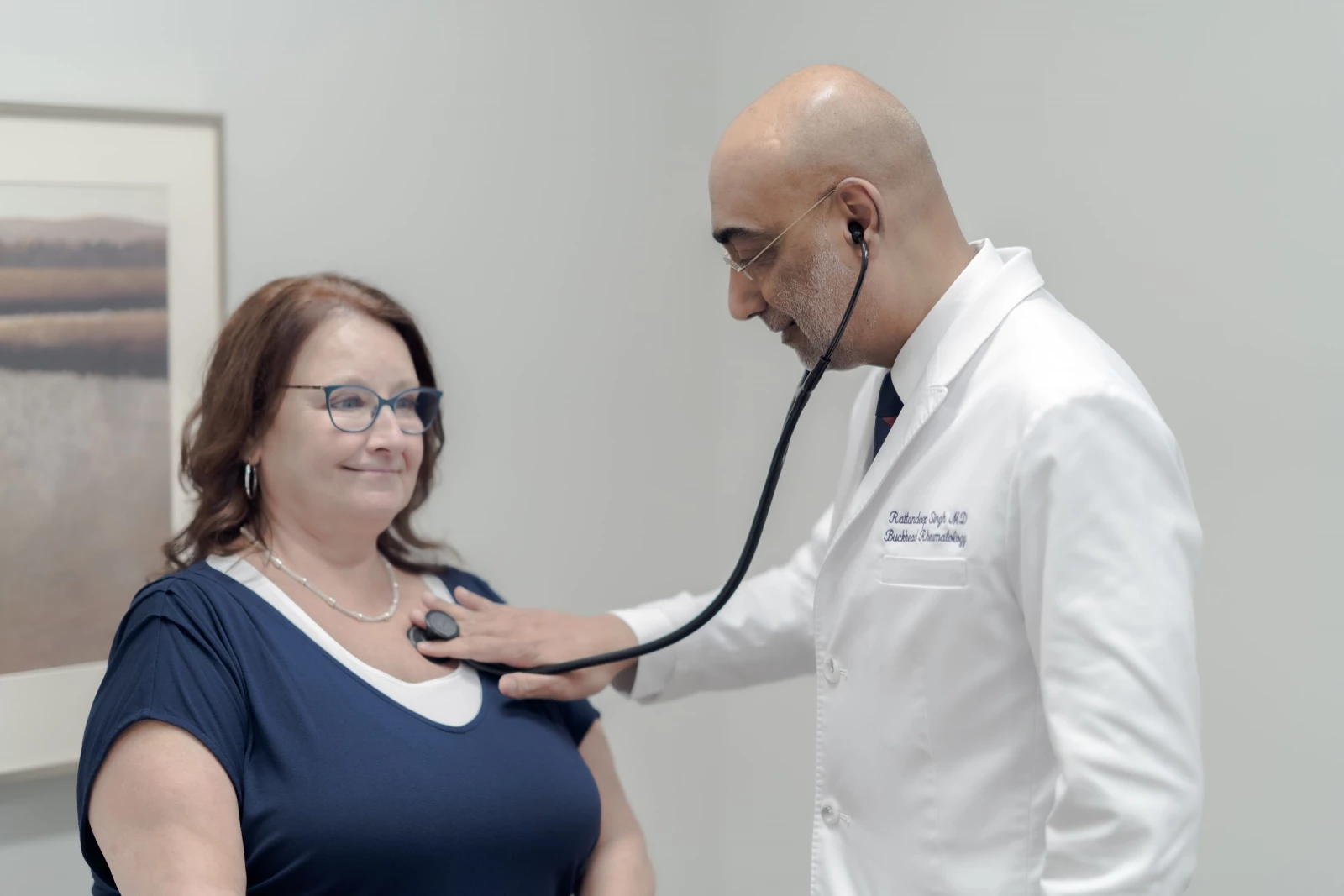Rheumatoid arthritis (RA) is the most common autoimmune type of arthritis.
In RA, your body’s immune system begins to react against its own tissues, causing significant inflammation in your joints and various other organs. This can cause joint pain, stiffness, swelling and decreased flexibility of the joints. RA often strikes small joints in your wrists, hands and feet but can also affect larger joints and other organs such as the eyes and lungs. About 75% of RA patients are women. Symptoms usually start between ages 30 and 50 but can happen to people at any age. RA is a chronic condition and there is no cure currently, however, there are many ways to treat and manage symptoms. Early diagnosis and the right treatments can ease symptoms and prevent joint damage or disability.

You may have symptoms of pain and inflammation in your:
- Fingers
- Hands
- Wrists
- Knees
- Ankles
- Feet
- Toes
What Are the Signs/Symptoms?
Stiffness in your joints in the morning is a clue that you may have RA, as this is not common in other conditions. It may last one to two hours (or even the whole day) but generally improves with movement of the joints. Swelling and pain in the small joints of the hands and feet which have lasted for greater than 6 weeks can also be a sign of a persistent inflammatory disease. Diagnosing RA requires a physical exam, blood tests and scans like X-ray, MRI, or ultrasound. Once diagnosed, treatments for RA aim to lower inflammation, ease symptoms like pain or swelling, and prevent long-term joint damage.
What Are Common Treatments?
A disease-modifying anti-rheumatic drug (DMARD) is usually the first treatment usually prescribed for RA. Common DMARDs include methotrexate, leflunomide, hydroxychloroquine, and sulfasalazine. If DMARDs alone don’t control RA inflammation, a rheumatologist may prescribe a biologic drug such as abatacept, adalimumab, etanercept, tocilizumab, or medications such as tofacitinib or upadacitinib. No single treatment works for all patients, and many people may change their treatment at least once during their lifetime. A rheumatologist will help find a treatment plan that is best for you.
Family history
You’re more likely to develop RA if you have a close relative who also has it.
Genetics/inherited traits
People born with specific genes are more likely to develop RA. These genes, called HLA (human leukocyte antigen) class II genotypes, can also make your arthritis worse. The risk of RA may be highest when people with these genes are exposed to environmental factors like smoking or when a person is obese.
Living with RA
Regular follow up with your rheumatologist is key to proper disease control and reduced risk of joint damage. Take all medications as prescribed, and notify your doctor if drugs cause any side effects or problems. Do low-impact aerobic exercises, such as walking, and exercises to boost muscle strength. Smoking cessation is also highly important if you’re a smoker since there is a known association of tobacco use and rheumatoid arthritis. Certain supplements such as omega-3 have also been shown to improve pain in patients with RA.
Contact us today to book a consultation.
 Call 404-355-1799
Make an appointment
Call 404-355-1799
Make an appointment
- Sat & Sun
- Closed
- Mon - Thu
- 8 am - 4 pm
- Fri
- 8 am - 3 pm

Make an Appointment
At this time we only take appointments by phone or with a doctor's referral. If you would like to schedule a visit, please give us a call at 404-355-1799.
You make also fax the office at 404-355-4788. Please note we are open Monday - Thursday from 8 am - 4 pm, Friday from 8 am - 3 pm and closed on Saturday & Sunday.
Our address is 371 East Paces Ferry Rd NE, Suite 525 Atlanta, GA 30305.
